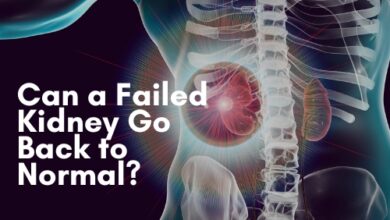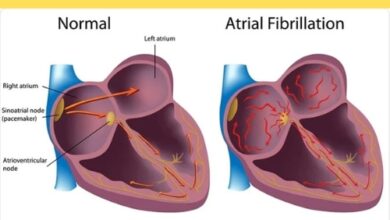AI detects cancer with 17% more accuracy than doctors: UCLA study

It’s becoming more accurate than doctors to identify a prevalent cancer in males thanks to artificial intelligence.
According to a news release from the university, a recent study from UCLA indicated that an AI tool identified prostate cancer with 84% accuracy — compared to 67% accuracy for cases recognized by clinicians.
The software Unfold AI, developed by Avenda Health in California, was recently approved by the US Food and Drug Administration. It employs an artificial intelligence algorithm to display the probability of cancer based on several kinds of clinical data.
A group of seven urologists and three radiologists examined fifty cases of tumor excisions in order to search for any indications of malignancy that might still be present.
The AI program carried out the same analysis a few months later.
The likelihood of cancer remaining behind was significantly reduced in situations where AI recognized it, as evidenced by the 45-fold increase in the “negative margin rate”—a medical term used to indicate the lack of cancer cells surrounding the removed tissue.
In order to help his patients manage their prostate cancer, urologist Ali Kasraeian, M.D. of Kasraeian Urology in Jacksonville, Florida, claimed he employs the Unfold AI technology.
He sent an email to Fox News Digital explaining, “The AI takes the information that we currently have about a patient’s prostate cancer — like their pathology, imaging, and biopsy results — and creates a 3D cancer estimation map.”
“Unfold AI’s results help us determine whether a patient is better off receiving radiation therapy, focal therapy, or more aggressive therapy like radical prostatectomy. This helps us to optimize our patients’ chances of surviving cancer, customize their care, and meet their quality of life objectives.”
According to the researchers’ findings, AI may result in more precise diagnoses and focused therapies, which would lessen the need for complete gland removal and its potential side effects, such impotence and incontinence.
Joshua Trachenberg, PhD, is a neuroscience professor at UCLA who also suffers from prostate cancer. Doctors advised surgically excising his prostate after discovering a slow-growing tumor on it, but he chose to look into alternative possibilities.
Trachenberg, 56, said Fox News Digital, “I got in touch with a team at UCLA, where I also am a faculty member, that was exploring alternate treatments to total gland removal.”
According to him, the UCLA researchers were exploring a method that destroys malignant tissue without harming the remaining portion of the gland by using ultrasound to burn the tissue and being “focally guided” by MRI.
Trachenberg was found to be a candidate for the experimental therapy following a few imaging examinations.
“This team was able to identify exact margins, target the cancerous area, and avoid any functional structures of the gland thanks to the 3D map created by Unfold AI,” the statement reads.
“It really helped me visualize my cancer and provided me with a better understanding of my situation.”
Trachenberg was spared a drastic prostatectomy and is currently cancer-free.
Because of the dangers involved in gland removal, he said, “so many men are afraid of treatment. Unfold AI enables therapies that don’t put men through the meat grinder.”
According to Trachenberg, there is potential for prostate cancer treatment in the future with this kind of AI technology, as he told Fox News Digital.
He claimed that men are frequently left with lifelong side effects that negatively impact their physical, emotional, and even marital health. “Too often, we are given only two options: Watch and wait for it to get worse, or take the entire gland out,” he added.
“I would advise any patient with prostate cancer who has been informed they require a radical prostatectomy to consider all of their options, including artificial intelligence technologies.”
Potential risks, limitations
Although not participating in the new study, Dallas, Texas-based Dr. Harvey Castro, a board-certified emergency care physician and frequent lecturer on artificial intelligence, offered his opinions on the possible dangers of the technology.
He told Fox News Digital, “The quality of the data AI is trained on has a significant impact on its accuracy.” “Inaccurate diagnoses may result from inadequate data.”
Castro issued a warning against placing too much reliance on AI.
He stated, “AI is a powerful tool, but it should complement clinical judgment made by health care professionals, not replace it.”
Castro went on, “AI is our new diagnostic ally.” As with any tool, though, it functions best in human hands.
Castro says that when utilizing this kind of technology, privacy should also be taken into account.
“To preserve patient trust and confidentiality, handling sensitive patient data with AI requires strict data protection measures.”
Kasraeian continued, “The cost of AI technologies can also be a significant barrier.”
“I hope this study motivates us—as well as upcoming payers—to increase the accessibility of these innovations for urologists and, above all, for our patients.”




